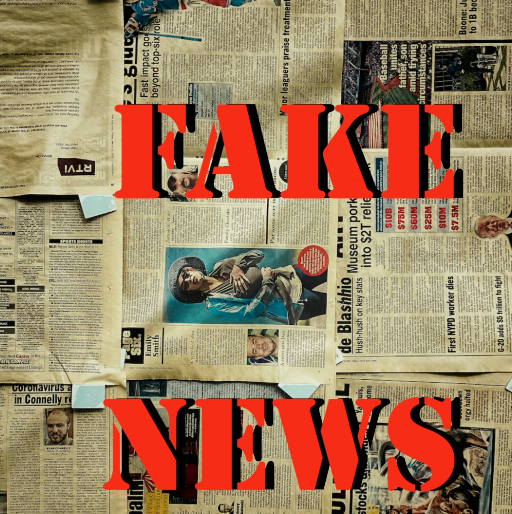Etymology of “Fake News”
The term is thrown around a lot, but very few agree on what it means.
January 19, 2018
“Fake News” made the annual list of most annoying words for 2017. It has also been the subject of heated debate between friends and family. Regardless, where did it come from and why is everyone talking about it?
Where does “fake” even come from?
First off, it is important to know that the origin of the word “fake” is vague at best. In fact, esteemed linguist Anatoly Liberman suggested in an article published by the Oxford University Press that she “does not know the etymology of [the term] fake, and no one knows.”
Regardless, the phrase “fake news” has become a household term with the Trump administration and the way Americans perceive the media. According to Liberman, some linguists have suggested that the word might have a Dutch origin.
Liberman also mentions the idea that the word is of German origin saying, “All over the Germanic-speaking world, we find fik– ~ fak- ~ fuk- verbs meaning “to move back and forth” and “cheat.” She believes the word was borrowed from Low German, a dialect spoken in the Northern part of the country and parts of the Netherlands. One thing that seems likely is that the word fake as we know it came from thieves in the London underground, meaning “to do.” Once it became appropriated by thieves, “to do” naturally became “to deceive or steal.”
Charles Dickens is to thank for the introduction of the word to common vernacular. In his novel Oliver Twist, published as a serial from 1837-1839, he uses the phrase “cly-faker” when referring to pickpockets. “Cly-” referred to a pocket, so to fake a cly would be to kill or “pick” a pocket.
Essentially, the word “fake” was likely taken by London thieves from lower Germanic words. When thieves borrowed the phrase, they turned it into slang. Over time, it took on a negative connotation, meaning to “kill” or “steal.” When Dickens used it in his writing, it was finally accepted into common English.
Donald Trump Era
Recently, the term “Fake News” has taken on a new meaning as Trump continues his accusations of the media, beginning while he was running for president and continuing after his inauguration.
Originally, the term fake news was “used to describe the propaganda and the lies masquerading as news, emanating from Russia and elsewhere, which proliferated on Facebook, YouTube, and other social-media platforms during the 2016 election campaign,” quotes New Yorker magazine. Since then, Donald Trump has used it as a term to discredit news sources who report on stories contrary to his worldview.
According to the same New Yorker article, “[Donald Trump] has tweeted about fake news more than a hundred and fifty times; on a single day in September, he did so eight times, in apparent frustration over coverage of his Administration’s response to Hurricane Maria’s devastation of Puerto Rico.”
Typically his attacks are against CNN, NBC News, Times, and others. He has even tweeted about a Fake News “Awards” saying, “The Fake News Awards, those going to the most corrupt & biased of the Mainstream Media, will be presented to the losers on Wednesday, January 17th.” He later changed the date to Monday the 22nd according to a recent tweet.
The page for the Fake News “Awards” festival, claimed that “2017 was a year of unrelenting bias, unfair news coverage, and even downright fake news. Studies have shown that over 90% of the media’s coverage of President Trump is negative.”
But the seriousness of these “Fake News” awards has been disputed in an article by The Washington Post saying, “at least eight of the “Fake News” winners resulted in corrections, with two reports prompting suspensions or resignations. Two of the winners were simply tweets that were quickly corrected and never resulted in news articles. One was an opinion article in which the author later retracted his prediction [of markets reaction to Trump’s win in the election].”
Although President Trump’s rants about “mainstream media” often seem flippant, they can have serious consequences. Steve Coll of the New Yorker reported that “last week, a Libyan broadcaster cited one of Trump’s tweets about CNN in an attempt to discredit a report by the network on the persistence of slavery in that country. And, when the leader of a nation previously devoted to the promulgation of press freedom worldwide seeks so colorfully to delegitimize journalism, he inevitably gives cover to foreign despots who threaten reporters in order to protect their own power.”
Ironically, the President has been frequently accused of making false public statements. On the 12th of January, Trump was condemned for calling Haiti and African countries “shithole” countries. Afterwards, he denied the claim in a tweet claiming “The language used by me at the DACA meeting was tough, but this was not the language used…”
In other words, our president’s crusade against “mainstream media” is being used to discredit thoughtful journalism, and block free speech, according to Coll.



